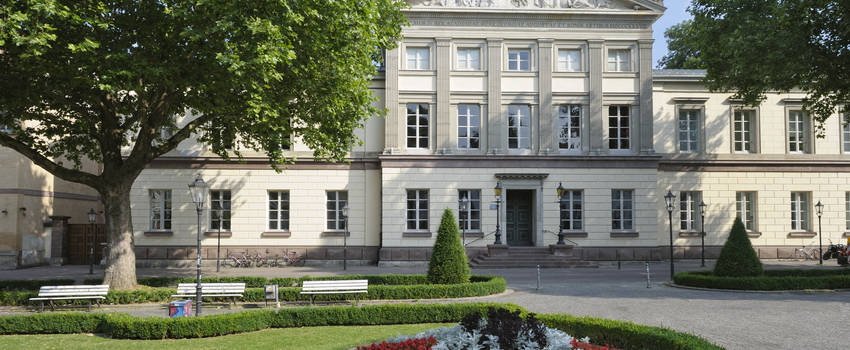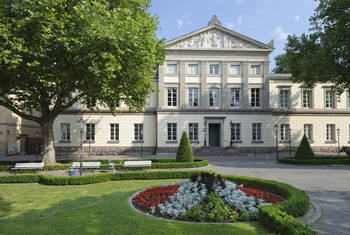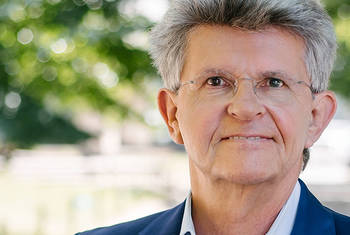Stephan Klasen How Does Gender Inequality Affect a Country’s Economic Performance?
Stephan Klasen is Professor of Development Economics at the University of Göttingen. Having completed his Ph.D. at Harvard University, he has also held posts at the University of Munich and at the University of Cambridge. Klasen’s research focuses on poverty, inequality, environment, and gender. President of the European Development Research Network (since 2015), and a member of the UN Committee on Development Policy, Klasen regularly provides consultancy expertise to organizations including the World Bank, the OECD, and UNESCO.
Area of Research
Development Economics
since 2003
Professor of Economics (Senior Chair)
University of Göttingen (Georg-August-Universität Göttingen) (more details)
1998-2003
Professor of Economics
Ludwig Maximilian University Munich (Ludwig-Maximilians-Universität München)
Department of Economics
1996-1998
Research Fellow and Associate Director
University of Cambridge
Centre for History and Economics
1996-1998
Research Fellow
University of Cambridge
King's College
1995-1996
Visiting Lecturer
University of the Witwatersrand
1991-1994
Ph.D. in Economics
Harvard University
1992-1992
M.A. in Economics
Harvard University
- Journal of Economic History
- American Economic Review
- International Economic Review
- Review of Economics and Statistics
- Science
- Journal of Macroeconomics
- Economica
- European Economic Review
- Oxford Economic Papers
- World Development
- etc.
- Academy of Sciences in Göttingen (Elected Memeber; since 2007)
Prizes
- Honorary Doctorate (University Jaume I, Castellon, Spain, 2018)
- Theodor Heuss-Professorship Award (2013)
- World Bank Green Award (2006)
- Bok Center Teaching Prize (1990-1993)
- Poverty and sustainable development: a long-term panel data project in Thailand and Vietnam. 2016-2019 Funded by German Research Foundation. PI together with Andreas Wagener and Ulrike Grote, and Hermann Waibel.
- Growth and Economic Empowerment of Women. 2016-2018. Collaborative research project funded by Canada's IDRC, the UK's Department for International Development, and the Hewlett Foundation. Lead PI in consortium including Delhi School of Economics, University of Cape Town, University of Stellenbosch, Wageningen University, and University of Göttingen
- Reducing poverty risk in developing countries. 2015-2018. Collaborative research project, funded by Ministry of Science and Technology of Lower Saxony (MWK). Lead PI, together with Thomas Kneib, Sebastian Vollmer, Marcela Ibanez, Jann Lay, Tatyana Krivobokova (et. al.)
- Research Unit 2432 'Socio-ecological systems in the Indian rural-urban interface. 2016-2018. Funded by German Research Foundation. PI for subproject on nutrition and food security at rural-urban interface. With Stephan von Cramon.
- Gender inequality and public goods provision. 2015-2018. Collaborative research project, funded by Ministry of Science and Technology of Lower Saxony (MWK). Joint with Amy Alexander (Gothenbburg) and Chris Welzel (Lüneburg).
- Collaborative Research Center ‘Socioeconomic and ecological functions of lowlands rainforest transformation systems’ (CRC990). Project on long-term welfare dynamics and emission trade-offs. Joint with Jann Lay. 2012-2015, after successful review, extended to 2016-2019.
 © Universität Göttingen/Frank Stefan Kimmel
© Universität Göttingen/Frank Stefan Kimmel

University of Göttingen (Georg-August-Universität Göttingen)
Göttingen, GermanyFounded in 1737, Georg-August-Universität Göttingen is a research university of international renown with strong focuses in research-led teaching. The University is distinguished by the rich diversity of its subject spectrum particularly in the humanities, its excellent facilities for the pursuit of scientific research, and the outstanding quality of the areas that define its profile. From 2007 to 2012 Georg-August-Universität Göttingen was rewarded funding from the Initiative of Excellence of the German Federal and State Governments with its institutional strategy for the future entitled “Göttingen.Tradition – Innovation – Autonomy”. The University was able to realise all measures of the concept. Now Göttingen University develops the successfully established measures further to continously advance the University’s positive developments in research and teaching. (Source)
Map
Public policy discussions have tended to assume that reducing gender inequality in areas including education, labor force participation and pay will automatically lead to improved economic performance. In this video, STEPHAN KLASEN reviews existing economics research in order to determine whether this assumption is robust. Examining theoretical models, accounting studies, cross-country regressions, and micro-level studies, Klasen finds that while reducing gender gaps in education clearly has a positive impact on a country’s economic performance, much more work is required before we have a reliable understanding of the economic impact of reductions in other forms of gender inequality. With evident relevance to public policy debates, Klasen’s work draws attention to a considerable gap in knowledge that should occupy researchers for many years to come.
LT Video Publication DOI: https://doi.org/10.21036/LTPUB10645
The Impact of Gender Inequality on Economic Performance in Developing Countries
- Stephan Klasen
- Annual Review of Resource Economics
- Published in 2018









